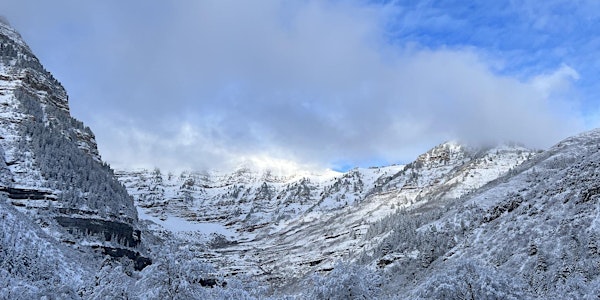
SCRIPS 2024
Religious Pluralism and Human Flourishing
Date and time
Location
BYU Hinckley Center
Hinckley Center Brigham Young University Provo, UT 84602Refund Policy
About this event
Religious Pluralism and Human Flourishing
The Student Conference on Religion in the Public Sphere (SCRIPS) focuses on the role that religion plays in the public sphere. This year, the SCRIPS theme is Religious Pluralism and Human Flourishing. This theme will explore the role that religious pluralism (a condition in which many faiths, beliefs, or none, can co-exist and flourish) can play in addressing challenges we see in today’s diverse society. Specifically, student participants will work in teams to address challenges we’ve recently seen on many college campuses regarding diversity, freedom of speech, and the quest for pluralism. Each team will have a faculty advisor to help them understand the challenge, analyze available resources, and develop possible solutions.
Conference Dates: Feb 28 - March 2
SCRIPS provides students with the chance to problem solve in the context of religious pluralism, experience team building with new acquaintances, and practice real-world application of new ideas. Students will also interact with and learn from expert faculty advisors who have been drawn from academia and practitioners.
The conference has an attendance fee of $75. This fee includes the cost of housing and meals. Travel costs are separate. Please email us if the fee may cause undue hardship.
Faculty Advisors
Kevin den Dulk, Paul B. Henry Chair in Political Science at Calvin University
Kevin R. den Dulk (PhD, University of Wisconsin) is the Associate Provost of, and the Paul B. Henry Chair in Political Science at, Calvin University. He is the former Executive Director of the Henry Institute for the Study of Christianity and Politics at Calvin College. An award-winning teacher, his scholarly work focuses especially on how religion works through civil society to foster democratic citizenship, both in the United States and abroad.
James Patton, President and CEO at International Center for Religion and Diplomacy
James Patton (MALD, The Fletcher School at Tufts University; MDiv, Harvard Divinity School) is President and CEO at the International Center for Religion & Diplomacy (ICRD). He has conducted international development, conflict transformation and social reconciliation for over two decades in more than a dozen countries, building collaborative networks and programs with the entire range of social and political actors in complex conflict environments. He explores the relationship between religious motives, religious actors and key areas of instability around the world, seeking ways in which this key source of identity and motivation can be incorporated into strategies for reducing violent conflict.
Eva Witesman, Director of Ballard Center for Social Impact at BYU Marriott School
Eva M. Witesman (MPA and PhD, School of Public and Environment Affairs at Indiana University) is a professor in the Marriott School of Business at Brigham Young University and serves as Academic Director of the Ballard Center for Social Impact. Her research explores corporate social strategy, public values, and perspectives on the nonprofit sector. Her research has appeared in top public and nonprofit administration journals. She is currently a research fellow at the Center for Organization Research and Design at Arizona State University. She is the division chair for the Public and Nonprofit Division of the Academy of Management.
Andrew Reed, Chair of BYU Council for Interfaith Engagement
Andrew C. Reed (PhD, Arizona State University) holds Masters degrees from Oxford University (Slavonic Studies) and Cambridge University (Jewish- Christian Relations). He focuses on the history of relations among Jews, Christians, and Muslims, and recently did research in St. Petersburg, Russia on human rights and religious freedom in Eastern Europe. At BYU, he teaches comparative religion and church history. In 2023 he was awarded an Arthur Vining Davis Foundations Grant for “Interfaith Leadership and Religious Literacy” to build interfaith student leaders that have a greater understanding of the world’s faith traditions and capacity to be bridge builders.
Paul Lambert, Director of Religion and Society Initiative at BYU Wheatley Institute
Paul Lambert (DLS, Georgetown University) is the initiative director for Religion and Society at the BYU Wheatley Institute. Before this he ran his own consulting practice in addition to his roles as Senior Business Fellow at the Religious Freedom & Business Foundation and Visiting Fellow for faith and religious freedom in business at the Marriott School of Business at BYU. Previously he was Assistant Dean at Georgetown University’s McDonough School of Business and was Academic Director and Assistant Professor at the National Defense University, where he received the highest award available for civilian service from the Chairman of the Joint Chiefs of Staff. He also served on the executive education advisory board for the Fletcher School of Law and Diplomacy. His work has focused on religious diversity, equity, inclusion, and pluralism in the workplace and First Amendment issues.
Additional Details
SCRIPS will take place at BYU's Aspen Grove, a remote retreat located an hour away from Salt Lake City, Utah, near the Sundance Mountain Resort. Please note that the nearest services and convenience stores are a 30 minute drive from Aspen Grove.
The conference will begin on BYU campus the evening of February 28 and will run until the morning of March 2. The daily schedule will vary, but student attendees should be prepared for group work, discussions with faculty and experts, and fun activities (including snowshoeing and cross country skiing).